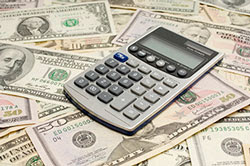“Technology changes have transformed the media landscape over the past 10 years, creating winners and losers along the way. I’m proud to say that we are clearly in the first camp,” said CEO Mel Karmazin in announcing Q4 and full year results for Sirius XM. “We are no longer a long-shot concept and company. I believe we are increasingly viewed as a sure thing.”
Sirius XM reported that Q4 revenue rose 9% to $736 million and adjusted EBITDA rose 25% to $144 million. Karmazin’s favorite yardstick for the company is free cash flow (FCF), since that is money which can be used to make acquisitions or pay down debt. FCF increased 11% to $167 million.
Some media headlines for the quarter noted that Sirius XM posted a loss for the quarter. True, it had a net loss attributable to shareholders of $81 million, compared to net income of $12 million in Q4 of 2009. But excluding debt extinguishment and restructuring charges, net income would have been $64 million in Q4 of 2010, compared to $18 million a year earlier.
Sirius XM added 1,418,206 net subscribers in 2010, compared to a loss of 231,098 in 2009, ending the year with 20,190,964, a gain of 8% over the course of 2010. That was helped by improving auto sales, but Karmazin proudly noted that the company improved its conversion of trial subscriptions to paying customers from 45.4% to 46.2%.
Full year 2010 revenues gained 14% to $2.82 billion. Adjusted EBITDA rose 35% to $626 million and FCF improved 14% to $210 million.
Karmazin told analysts the company is being cautious about its guidance for 2011, but expecting growth similar to what was seen in 2010. “We expect to generate approximately $3 billion in revenue and $715 million in adjusted EBITDA. We also expect free cash flow to improve to $300 million this year,” the CEO told The Street in his conference call. He’s also expecting to add 1.4 million net subscribers. One new market soon to be targeted is the US Hispanic marketplace, which will include the launch of some new channels.
With no new satellite launches near-term, comfortable leverage and growing FCF, Karmazin is now talking about the possibility of returning capital to shareholders in the form of stock buybacks or dividend payments. His personal preference is buying back stock, which he says is more tax efficient, but it will be up to the board of directors to decide what to do with the company’s cash. Other possibilities are further paying down debt, which doesn’t seem attractive at current leverage levels, or making acquisitions, but the CEO isn’t aware of anything the company would want to buy.
Having brought the company through a difficult 2009 to growth in 2010, Karmazin is now sounding very confident. “I believe the best days for Sirius XM are yet to come. We fully expect to hit it out of the park in 2011,” he told analysts.
RBR-TVBR observation: Mel has gotten the business model firing on all cylinders since closing the merger and reworking the company’s debt. It’s worth noting that while advertising revenue grew 25% in 2010 to $64.5 million, that’s still a small portion of revenues. Satellite radio subscription revenues grew 6% to $2.41 billion for the year. Mel has gotten very comfortable with focusing on subscription revenues while AM, FM and Internet radio battle over most of the advertising pie.




